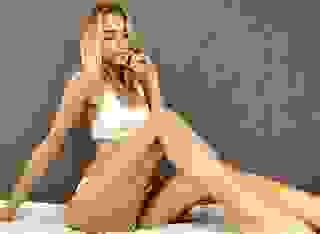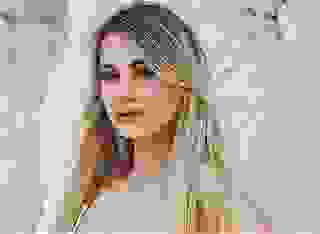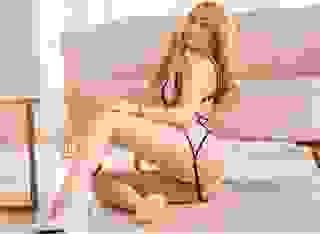Note: You can change font size, font face, and turn on dark mode by clicking the "A" icon tab in the Story Info Box.
You can temporarily switch back to a Classic Literotica® experience during our ongoing public Beta testing. Please consider leaving feedback on issues you experience or suggest improvements.
Click here"It might take two, maybe three days, but the road is without compare. Beautiful."
Sam nodded, Deb did too. "Why not?" she said. "What's the rush?" And so we did, and yes, so it was. Beautiful, I mean. Perhaps not as wild as Croatia's coast, not quite so medieval, but the series of two lane roads we took was without compare, in my mind anyway, as it wound between gorgeous seaside villages then through twisting arroyos where windblown sand threatened to devour the asphalt. Farmland, villages, huge estates, vineyards all in random succession, all with the Black Sea just to our left, cooling breezes nearly all the time, passing storms out over the water reaching in for us from time to time, and as we grew tired Sam decided to stop at a small seaside inn late in the afternoon.
Rustic? Perhaps, but the farther off the beaten path we ventured, the more relaxed our world became, the more relaxed civilization became. There was an elegance out here, a simplicity I'd never known existed. Our dinner was beyond perfect, candlelight more soothing than electric in ways so unexpected; fish soup, salads, lamb -- everything alive with lemon and cilantro and otherworldly scents bathing our evening, covering our evening in some kind of strange magic. Orhan and his crew weren't cops that night, they were medieval knights taking us on a journey, happy, laughing, and alive, part of the magic. When someone started playing a mandolin, one of the Ahmets asked Deb to dance, and I'd never seen her so happy, so in love with being alive. Sam sipped coffee, Turkish coffee, and I couldn't detect the slightest trace of his juvenile self on that tree covered patio -- no horniness, no obtuse longing for another woman to notch on his Winchester. He watched Deb and Ahmet, he watched an ancient dance unfold and I think even he began to fall in love with her, with life, and maybe it was for the first time in his life, for when I looked in his eyes he looked happy in a way I'd never seen before.
We woke late that next morning, and I felt as relaxed as the breeze washing ashore. Breakfast was another revelation, fresh simplicity itself, then we were on the road again, drifting along beside that carefree shore until we entered Akcakoca, then we rode along the breakwater, admiring the village and the tiny harbor at it's center. I felt I could have stopped there and planted my flag, called this place home, but onward we went, through even more idyllic villages and towns with names like Alapli and Eregli, each almost otherworldly in their foreign beauty. We stopped for the day in a small beachfront town, Memis, I think, was it's name, and there we found another hotel steeped in magic, and we found a restaurant on the water and had a dinner of fish and lamb under the stars, wild shadows cast by candles and torches. I didn't want this to end, and I could tell both Sam and Deb were caught up in the spell too.
Orhan and his crew didn't stay away from us, far from it. We listened to their stories about growing up in Turkey, about their family vacations to the area over the years, and about their hopes and dreams for the future. They lived right on the edge of the most volatile region on earth, Syria and the Levant, so they'd danced on that volcano all their lives, and I wondered what it might feel like to live in a city like San Diego if the Israeli-Palestinian conflict raged just across the border, in Tijuana. This was Orhan's reality, Turkish reality, and yet here they were, living in a country that was in most every way as advanced as California, and certainly more gorgeous. It wasn't a contradiction to them -- this was their day to day reality.
I had always envisioned Sinop, the home of Diogenes, a waypoint on Alexander's long march to India, as some windswept desert outpost, baked in fierce heat, bypassed by history and left to wither away until the end of time. No, not quite. Dry and windswept, perhaps. Isolated, yes, very. Alive with so many veins of history running through it's feathery streets, cliffs as seawalls, ancient homes built half in cave, half of stone by Hittite hands. We found another one of those inns that seemed to lie astride an invisible divide between the past and our present, and this place did indeed present an uneasy balance between the useable past and life in the twentieth century.
The hotel was a monument to ancient engineering, the stone building set deep inside a natural stone cliff, the cove formed by the structure floated high above the sea -- yet remained seemingly a part of it -- the rear of the building a random arrangement of layers, each a patio, each borne of stone, each drifting aimlessly down, connecting the hotel to the sea. And there was neither television nor telephone in our rooms, though there was a phone in the lobby, and once in our rooms we unpacked, lost from the present, wandering through time, wondering where we might find ourselves in a day's time. In a week's. Even Orhan seemed lost here, adrift, untethered.
I loaded more Kodachrome in the F5 and grabbed a coat, for there was a late September chill in the air, and I left the hotel and stepped back into the past; Deb was there behind me, as she always was, but she was silent now, as lost as I, adrift over a sea of roofs, all red tile and ancient.
The village was almost completely surrounded by the sea, a single grape dangling from the vine, and we walked harbor-side, down to sea, to the fishermen that lined the harbor wall, and we watched them offload their catch as restauranteurs and housewives cast bids for the days work, perhaps as had happened for millennia. The only item present that afternoon with any relevance to our time was my camera, perhaps my wristwatch. Without those to ground me to the present I felt as perhaps Diogenes might have felt, or Alexander -- or perhaps a peasant child -- when I looked out over that water. Were my thoughts the same, my hopes and dreams similar to other travelers on this road in centuries long past? I don't know why, but time seemed meaningless here by the water's edge, perhaps as meaningless as my musings -- or perhaps not.
"I wonder," I said aloud, "if a traveler standing here a thousand years ago would have felt, or even thought about his life much differently than I am right now?"
"Probably not, John. He was probably tired from traveling all day, maybe for weeks at a time. He was probably far from home, missed his family, so maybe he was tired and hungry. Like us."
"I don't know. There's something about this place, Deb. Timeless doesn't even begin to describe the feeling here."
"It's justified, John. There's history going back 700 years before Christ walked the earth, right here. The stones we're walking on, maybe even the streets we just walked down, were here before the Greeks began writing down the first histories."
"I'm glad you're here. With me."
She took my hand, looked at me. "I've had a strange feeling all day. I can't explain it, either."
"What is it?"
"I can't put my finger on it, John, but have you ever been outside when there was an eclipse? A solar eclipse? It might be noon outside, not a cloud in the sky, and suddenly everything falls into shadow. You look out on a world that moves from noon to evening and back to noon, and all over the course of a few minutes. John, I feel like we're moving into those shadows."
I felt her skin on mine. I felt her words graze my soul -- like a bullet. "Well, we're leaving our known universe, aren't we? Away from all our comfort zones and into a part of the earth that has existed, up to now, only in our imaginations. From known to unknown, light into dark. Maybe..."
"I know, and I hope you're right. I also want something to eat. I bet Sam does too."
"Well, we skipped lunch. My guess is everyone is starving. We'd better head back..."
And everyone was. Sam and Orhan were looking for us when we showed up, but after we made our excuses we set off looking for another perfect restaurant. We found what we hoped was 'it', an open air seafood shack with 'Christmas lights' strung up over their patio and a couple of old men playing little mandolin-like instruments. Drifting smoke, grilling fish, more salads, more perfection, and by the time we ordered dessert I was beginning to wonder why I thought LA was such a great place to live.
Still, Deb's shadow hung over our table -- all through dinner, and I kept looking over my shoulder for Diogenes with his lantern, and I wondered what her truth was, and where we might run into it. Before I went to bed I called the girls from the lobby phone and talked with Rhea a long while; her studies were going well, she said, and she missed me. I told her about the past few days, my impressions of Sinop in particular, but I left out all mention of Deb's premonition.
She loved me, she said, and I loved her, I said -- more than once, and after I said goodnight I walked off into the shadow of the valley, not sure what tomorrow would bring.
+++++
We started early the next morning, eastbound for Trabzon, where we'd leave the Black Sea and turn south, away from Armenia and towards Lake Van, and beyond -- to Tehran. It took us two days, two long days of hot, dusty plains and winding mountain passes, most on very well maintained four lane highways, until we stopped near the border between Turkey and Iran, in the hamlet of Telceker. This was a night of goodbyes, of friendship celebrated and partings unwanted. I couldn't help but wonder what might have happened if I hadn't pulled over on the outskirts of Istanbul, if Orhan hadn't pulled over and offered to help us. How he'd recognized not only what we were, but what we represented, and how he'd put it all together.
We mounted up early the next morning and rode the last seven miles to the border crossing together, and we stopped just shy of the border and said our final goodbyes, and though Orhan and the jocks rode with us right up the crossing, they u-turned and peeled off westbound.
That crossing was interesting, and on many levels. The Turk side was all glass and steel, modernity operating on multiple levels, very familiar in every respect. Beyond, in Iran, the architecture was ersatz-medieval. Turrets and minarets of plaster and stucco, huge billboard-sized portraits of clerics and the Ayatollah everywhere we looked, just like Brezhnev's had been around Moscow in the 80s. This overwhelming cult of personality seems to define dictatorships, at least everywhere I'd been, and as soon as we crossed the line I felt almost oppressed, hunted, almost spied upon. We presented our visas, along with a letter from the Turkish Foreign Minister introducing us, describing our ride, and hinting at the opportunities for tourism we represented to both their countries. Phone calls were made, our bikes were searched -- very thoroughly -- and when we left, almost two hours later, there was a black sedan on our tail. And my God, the traffic headed into Turkey! Huge semi-rigs were backed up at least two miles, waiting to make the crossing into Turkey, and we rode into Bazargan for fuel and food of some sort. Our tail followed us off the highway into the village, and when we pulled over to look at a map of the region, one of the men inside got out and walked up to us, asked if he could be of service.
He led us to a restaurant, owned by a cousin of his, I think, and we bought the men's breakfasts, then we followed them to a gas station and filled up our tanks, as well as our back-up fuel containers. Our aim for the day was Qazvin, almost 400 miles ahead, and so I told our new 'friends', then we were back on the highway -- our eyes on the posted speed limit and our speedometers. An hour later another sedan pulled in behind us and our first 'friends' disappeared; another hour passed and this second car pulled off -- and then we were on our own! We pulled into the next gas station we saw, found an open air pita shack just down the road and enjoyed the Persian equivalent of a Coca-Cola with our lamb and yogurt.
There's something about riding long distances on a bike I'd almost forgotten: it's the sense of personal isolation that permeates the adventure -- for hours on end. You have your thoughts to keep you company as you ride, and I've found I tend to drift between vigilance for road hazards and out and out daydreaming -- sex is good fodder, too. There is one constant, however: you -- are -- alone. Until gas stops become a necessity, or your stomach starts to growl, anyway. Where deserts run right up to mountains, as they did here, there's one more constant: wind. And if there's one thing more uncomfortable than anything else on a motorcycle, it's a fierce crosswind, especially on an overloaded bike carrying a top-heavy load.
You start to watch whatever vegetation there is all the time, because that way you can spot big gusts before they hit you, before they slam you around. Some gusts can pick you right up and spit you off the road, or into an opposing lane, and that's what we ran into that day. Winds almost 50 knots, right on our beams with some gusts much higher, and all we could do was slow down when they became overwhelming.
We made Qazvin and found a hotel, and it was decent, not ostentatious but comfortable. We missed Orhan & Co when we slipped out for dinner, and we had to guess when we looked at the squiggles on the menu.
"You are English," we heard a voice say, and Deb turned around.
"Yes, I am."
An old man walked over, looked at our motorcycle gear and asked where we were coming from. Deb recounted our ride from Munich to Athens, then the rest of our journey.
He nodded his head. "I have been to Munich. And London. Can I help you with your meal?"
"Yes, please."
He made a few suggestions then ordered for us, and we asked him if he had time to sit with us. He sat for a few minutes before telling us he was a colonel in the Republican Guards. "This is a courageous ride," he said as we waited for our tea to come. "The weather should hold, unless you stay to the north. There is a cold front coming, maybe snow. I would recommend that you head south, to Zahedan, and at any event, avoid Tehran. I assume you will cross into Pakistan, not Afghanistan?"
"Yes, that's right," Deb said.
"Captain Anders," he said, "you are a pilot? For TWA?"
"Yes, that's right," I said, my blood chilling.
"Wonderful airline. Very nice, the time I flew."
I smiled.
"We will be discrete," he said. "We must follow you. We do not want any controversy, but we ask that you do not, what is the word, hesitate, perhaps?"
"I understand," Deb said.
"Dr Green, before the meal comes, might I ask a favor?"
"Of course. How can I help you?"
"My granddaughter is ill. I wonder, could you examine her tonight?"
"Of course."
The old man's mood brightened immediately. "Really? I would appreciate that."
Our food came and he excused himself while we ate lamb kebabs and spinach, and when we finished he rejoined us, two more commando types by his side.
"You have supplies on your motorcycle you need?" he asked Deb.
"Yes, that's so."
"You will ride with me, in the car. One of my men will ride the, uh, the motorcycle behind us. Captain Anders? You and this -- writer -- will remain here. We will return the doctor as soon as she has finished her examination."
"Of course," I said. "Could you suggest something sweet, perhaps something to drink?"
He turned to the kitchen, spat out a string of commands, then he asked Deb to come with him. When they were gone, at least when the colonel and his commandos were gone, I turned to Sam. "I can see your movies are held in high regard here," I chuckled.
Sam shrugged. "Iran, Utah, what's the difference? I was particularly thrilled when he called you Captain."
"I noticed."
"Yes. You turned the color of milk."
"Really?"
Some sort of rice pudding came, and coffee about as thick as molasses.
"How many days will it take us to get out of here?" I asked.
"Best guess? Two and a half, maybe three. But you know what, John. It ain't gonna get much better from here on out. We just have to trust that we won't run into too many homicidal maniacs. This guy's not a bad actor, and thank goodness Deb is here."
"Never thought I'd here you say that, Slick."
"Hey, when you're wrong, you're wrong. And you know, she handled those crosswinds better than you did. Just FYI, Ace."
"I was terrified more than once."
"Seventy knot winds will do that."
"You know, forty, sometimes forty five is the limit in a heavy. Seventy will knock an eighteen-wheeler on it's side." I took a deep breath, took a sip of the coffee. "Wow. Nice mud."
"Probably high octane caffeine. Go slow."
"Wonder if there are telephones here?"
"Telephones, yes. Connections to the UK? Doubtful from what I read."
Another deep breath, this one followed by a long sigh.
"She'll be okay, John. They won't hurt her. Not a doc. Not a woman."
"Oh ye of little faith, eh?"
"You really do love her, don't you?"
"It shows, huh?"
"Hell, I don't know how you couldn't. Not now, after what we've been through."
"It's not really an issue, Sam. She knows that. So does Rhea."
"And Lucy? You think that's what she wants?"
"Why shouldn't she?"
"Hell, are you kidding? Her mother AND her father, together at last? Every kids dream come true."
"I never thought of it that way."
"Maybe you're right. Maybe...well, hell, who knows how this is going to turn out."
"Thanks, Amigo. You've really cheered me up. How long have they been gone?"
"Only a half hour. My guess is we'll be here two or three hours. You know how doctors are."
It was almost four hours, as it turned out, and Deb was already at out hotel when the colonel showed up. He told us we were free to follow him back to the hotel, and after we parked and secured the bikes, Deb's too, we turned and waved at our very own republican guardsmen as they drove away into the night. Sam and I laughed, then knocked and went on into Deb's room.
"You okay?" I asked.
"Me? Of course."
"He was on the level? No torture, no truth serum? They didn't beat you up?"
She looked away for a moment, then came back to us. "His granddaughter is very ill. She won't get appropriate treatment here. Their tech just isn't up to the challenge."
"So?"
"So, we had a long talk about it. They're very proud, reluctant to ask for help, but he knows who we are, what we do. Everything. Very strange feeling, that, and Sam, you be a good boy. He hates you. Anyway, I asked if he could get her to London. He said he'd try. If he can, I can get her to the right doc. They may be able to help her."
"Fuck."
"Yeah. I don't think he'll bother us, though. And who knows? We may have a friend now."
"You okay? Really?"
"Yup, no problems. Showered and everything. Gonna hit the sack."
Sam left, I sat on the edge of her bed. "I was concerned."
"Concerned?"
"Scared shitless. Worried about you. After two hours I was out of my mind."
She looked at me for a while, all scrunched up in her pajamas, but she didn't say a word.
"Anyway, we better get an early start," I said, getting up to leave.
"Sleep tight," she said, and as I shut the door she switched off the light.
+++++
The further we got from Turkey the flatter and more uninteresting the terrain became, yet our second day in Iran was marked by boredom and more intrigue. Hot and dry, the desert landscape was punctuated by sharp little pyramidal mountains, most, oddly enough, almost black, and while the highway was in very good repair we saw very little traffic. Bound for Yazd, the day was endless hours droning through a remarkably forgettable dessert nlandscape.
But that night we were rejoined by our colonel, who arrived at our hotel, unfortunately, in a helicopter. Deb didn't wait, didn't say a word, for apparently all had been arranged the night before. She had a small bag ready to go and walked out to the waiting Puma and hopped aboard, and she didn't even wave as the machine lifted and flew off towards Tehran.








